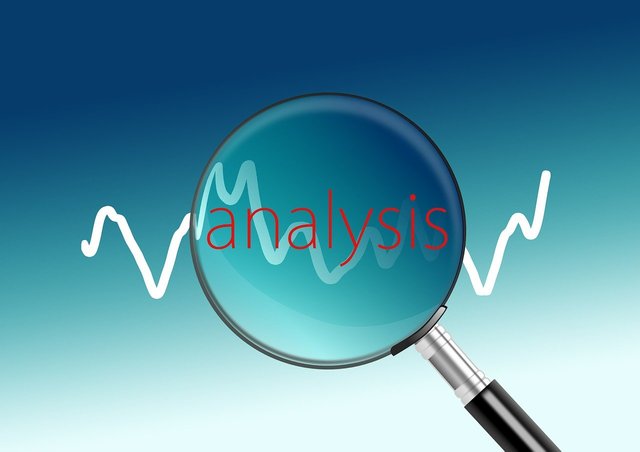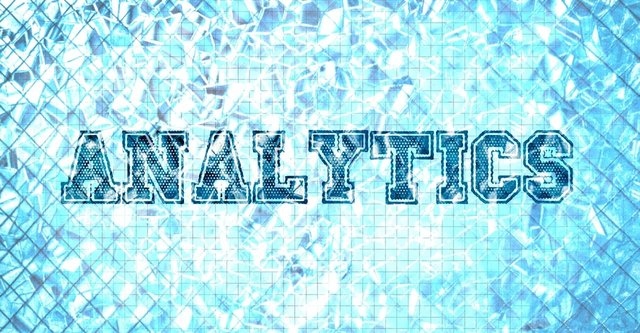Hello Steemians,
Welcome to this post, let's discuss the not-so-obvious differences between the terms Analysis and Analytics.
Due to their similarities, some people believe they share the same meaning and thus use them interchangeably. Technically, this isn't correct. There is a distinctive difference between the two, and the reason one has often been used instead of the other is the lack of a transparent understanding of both. So, let's clear this up.
Analysis
First, I will start with Analysis, consider the following, You have a huge dataset containing data of various types, instead of tackling the entire dataset, and running the risk of becoming overwhelmed, you separate it into easier-to-digest chunks and study them individually and examine how they relate to other parts, and that's analysis in a nutshell. However, one important thing to remember is that you perform analysis on things that have already happened in the past, such as using analysis to explain how a story ended the way it did or how there was an increase in sales last summer. This means that we analyze to explain how and why something happened.
Analytics
Now, this leads us to Analytics, as you have already guessed, Analytics generally refers to Future, instead of explaining past events, it explores potential future events. Analytics is essentially the application of logical and computational reasoning to the part obtained in an analysis and in doing this you are looking for patterns and exploring what you can do with them in the future.
Now, Analytics branches off into two areas:
Qualitative: This is using your intuition and experience in conjunction with the analysis to plan your next business move.
Quantitative: This is applying formulas and algorithms to numbers you have gathered from your analysis. Let's take a look at some examples:
Let's say you are an owner of an online clothing store, you are ahead of the competition and have a great understanding of what your customer's wants and needs are. You have performed a very detailed analysis of women's clothing articles and are sure about which fashion trends to follow. you may use this intuition to decide on which styles of clothing to start selling, this will be Qualitative analytics but you might not know when to introduce the new collections in that case, relying on past sales data and user experience data, you could read which month to do that. this is an example of using Quantitative analytics.
In conclusion, now that you have been able to understand the difference between Analysis and Analytics, it wouldn't be difficult to see how terms such as data analysis, data analytics, business analysis, and business analytics can have their unique means.
Thanks


Thank you for publishing an article in the Steem4nigeria community today. We have assessed your entry and we present the result of our assessment below.
MODs Comment/Recommendation:
Remember to always share your post on Twitter using these 3 main tags #steem #steemit $steem
Hi, Endeavor to join the #Nigeria-trail for more robust support in the community. Click the link Nigeria-trail
Guide to join
Downvoting a post can decrease pending rewards and make it less visible. Common reasons:
Submit
Thank you for your assessment..
Downvoting a post can decrease pending rewards and make it less visible. Common reasons:
Submit